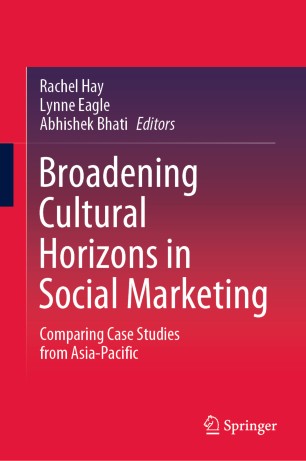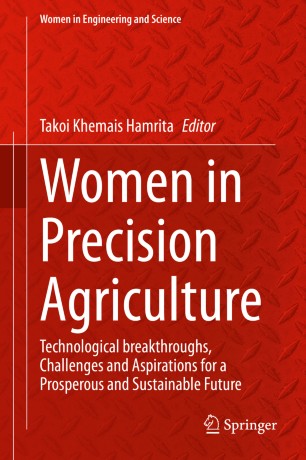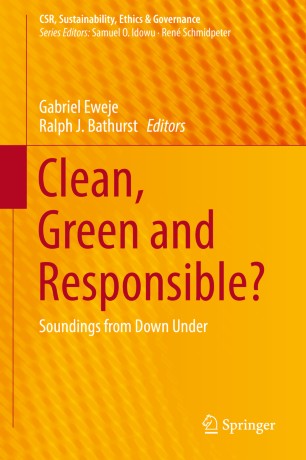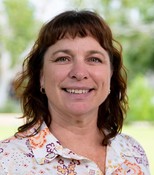
A/Prof Rachel Hay ~ Knowledge Broker, Tropical North Queensland Drought Resilience Adoption and Innovation Hub
Cairns Institute
- About
-
- Guest editor Oceans and Coastal Management Oceans and Coastal Management Special Issue
- Journal of Social Marketing (Emerald Insight)
- Ecological Management & Restoration (Wiley)
- Oceans and Coastal Management (Elsevier) (Guest Editor)
- Emotion, Space, Society (Elsevier)
- Environmental Science and Policy (Elsevier)
- Teaching
- Interests
-
- Professional
-
- Technology adoption in Rural, Regional and Remote Australia: Digital Connectivity - getting connected, staying connected and using your connection
- Ag-tech Adoption: Barriers and enablers to adoption of agricultural technology
- Behaviour Change: research collaborations around behaviour change in agricultural practices
- Pig Farming: Farming practices in paddock raised pig production in Northern Queensland
- Content Analysis - working with documents and content to establish readability levels marketing material in water quality management in the Great Barrier Reef
- Data Analysis - analysing large data sets of rural, regional and remote internet usage to improve connectivity
- Research
-
- Technology Adoption by Women In Agriculture: Understanding user acceptance of rural technologies amongst beef producers in Queensland.
- Agriculture: Understanding adoption of agricultural technology (ag-tech) to increase agricultural production.
- Women in Agriculture: Further establish women’s role in the diffusion of digital technology to agriculture and changes in technology adoption over time.
- Technologies affect on well being: To explore and expand the notion that women using technology can reduce isolation within the farming partnership, particularly for men, reducing isolation's effect on well-being, extending to explore the attractiveness of technological properties and technologies effect on staff retention and succession.
- Social Marketing: Behaviour change in nutrient use in the great barrier reef
- Marketing Communication: The level of readability of marketing material can seriously affect the uptake of innovative farming practices. Understanding literacy levels and improving readability may enact behaviour change in water quality management practices
- Instant Feedback Assessment Techniques (IF-AT): Provides students with immediate feedback about the accuracy of their answers to a test. Ensuring the students last response is the correct one facilitates learning and improves retention... it also makes learning fun
- Widening Participation - motivations and barriers affecting low socio-economic students' decisions about participating in tertiary education
- Human Dimensions - how peoples knowledge and attitude affects how things are managed
- Teaching
-
- Social Marketing - Developing activities aimed at changing or maintaining people’s behaviour for the benefit of individuals and society as a whole. Combining ideas from commercial marketing and the social sciences, social marketing is a proven tool for influencing behaviour in a sustainable and cost-effective way.
- Marketing Principles and Research - Understanding activities a company undertakes to promote the buying or selling of a product or service including advertising, selling, and delivering products to consumers or other businesses.
- Sales, Services and Business Development - Understanding how to get ahead of the crowd in the services industry.
- Experience
-
- 2015 to present - Volunteer Data Analyst, Better Internet for Rural, Regional and Remote Australia, James Cook University (Townsville)
- 2019 - Research Fellow, The Digital Toolbox Project, Department of Agriculture and Fisheries, Project Value $10,000, James Cook University (Townsville)
- 2017 to 2018 - Research Lead/Consultant, AgriNet Project, Department of Agriculture and Fisheries, Project Value $10,000, James Cook University (Townsville)
- 2016 to 2018 - Co-investigator, NESP Project 2.1.3, Project Value $1.1million, James Cook University/National Environmental Science Program (Townsville)
- 2017 - Co-investigator, NESP Project 3.1.3, Project Value $19,000, James Cook University/National Environmental Science Program (Townsville)
- Research Disciplines
Profile
Rachel Hay is a Social Scientist and early career researcher for the College of Business Law and Governance at James Cook University, Townsville, Australia. Rachel's PhD research focussed on "Technology Adoption by Women in Agriculture". Rachel’s research extends to trans-disciplinary approaches to sustained behaviour change in social marketing, technology adoption and environmental protection interventions. Projects around changing behaviour include the adoption of technology in rural, regional and remote areas, reducing sediment and nutrient run-off in sugar cane farming and grazing and the Digital Homestead Project.
Leadership
Dr Hay is the Adoption Stream Leader in the JCU Agricultural Technology and Adoption Centre (Ag-TAC), her passion is to support rural, regional and remote regions to get connected, stay connected and use their connection towards sustainable regional growth of agricultural industries and their communities. Rachel is a Research Fellow with the Cairns Institute and a member of the Centre for Tropical Environmental and Sustainability Science. Rachel is also a member Pacific Connect (building stronger relationships between people in Australia and the Pacific).
Books and Book Chapters
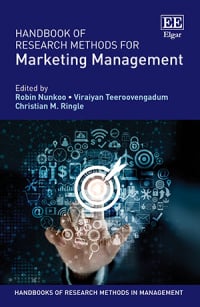
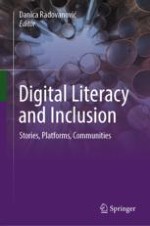
Editorial and Reviewing
Media
Rural women taking tech reins, 2014
High-tech may be revolutionary for rural women, 2015
Hi-Tech Helps Women on the Farm, 2015
Women use tech to drive cattle farming business in rural Australia, 2016
Women take the lead with technology on cattle properties, 2016
James Cook University researchers hard at work on scientific breakthroughs, Best of the Best, 2017
Ag-Tech... So What? Episode 49: Rachel Hay on the role of women in agtech adoption, 2019
Women calling the shots on Farm Tech, 2020
'More control over the property' for women tackling tech on Far North Farms, 2020
Previous Experience
Rachel started work as a Jillaroo on a small cattle station outside Townsville, QLD, then moved on to work as a technician with the Bureau of Sugar Experimentation in Tully. Moving to the big smoke Rachel transitioned into a career in marketing and administration, working for large corporations in Melbourne and Sydney. More recently, Rachel with her husband ran a paddock raised pig farm and now runs a small hobby farm.
- Honours
-
- Awards
-
- 2021 - ECR Open Access Champion for contribution to Open Access through research publications within the period 2019-2021
- 2021 - JCU Award for Excellence Community Engagement: Tropical North Queensland Drought Resilience Adoption and Innovation Hub
- 2020 - JCU Award for Excellence Community Engagement: The BIRRR project aimed to provide information and support on telecommunications services to people living and working in RRR Areas. Previously there had not been any other group supplying this service.
- 2019 - JCU College Business Law & Governance Research Recognition Awards prize winner: Category 3 - produce 3 or more book chapters in the one calendar year in edited works from quality publishers with ISBN recognition.
- 2019 - Sessional Teaching Award, James Cook University
- 2019 - Graduate Research Dean’s Award for Higher Degree by Research Excellence, James Cook University
- 2018 - Inclusive Practice Award (Student Nominated), James Cook University
- 2015 to 2018 - Australian Postgraduate Award
- 2013 - Academic Medal, James Cook University
- 2013 - Philip Pearce Award, James Cook University
- Fellowships
-
- Research Fellow, Cairns Institute
- Memberships
-
- Centre for Tropical Environmental and Sustainability Science
- Pacific Connect (building stronger relationships between people in Australia and the Pacific)
- Australian Women in Agriculture
- Australian Institute of Marketing
- Queensland Rural Regional and Remote Women's Network
- Australian Academy of Social Marketing
- Other
-
- 2020 - Agricultural Technology and Adoption Centre (Ag-Tac) - Adoption Stream Leader
- 2020 to 2021 - Centre for International Trade and Business in Asia (CITBA) - Organising Committee Member: Business, Economics, Management and Sustainability (BEMAS) Conference
- Publications
-
These are the most recent publications associated with this author. To see a detailed profile of all publications stored at JCU, visit ResearchOnline@JCU. Hover over Altmetrics badges to see social impact.
- Journal Articles
-
- Coggan A, Hay R, Jarvis D, Eberhard R and Colls B (in press) Increasing uptake of improved land management practice to benefit environment and landholders: insights through a transaction cost lens. Journal of Environmental Planning and Management,
- Losciale R, Hay R, Rasheed M and Heron S (2022) 'The public perception of the role, importance, and vulnerability of seagrass. A case study from the Great Barrier Reef'. Environmental Development, 44.
- Coggan A, Thorburn P, Fielke S, Hay R and Smart J (2021) Motivators and barriers to adoption of improved land management practices. A focus on practice change for water quality improvement in Great Barrier Reef catchments. Marine Pollution Bulletin, 170.
- Hasan S, Smart J, Hay R and Rundle-Thiele S (2021) Changing fertilizer management practices in sugarcane production: cane grower survey insights. Land, 10 (2).
- Hay R and Eagle L (2020) Impact of integrated sustainability content into undergraduate business education. International Journal of Sustainability in Higher Education, 21 (1). pp. 131-143
- Hay R, Eagle L, Saleem M, Vandommele L and Li S (2019) Student perceptions and trust of sustainability information. International Journal of Sustainability in Higher Education, 20 (4). pp. 726-746
- Hay R, Eagle L and Saleem M (2019) Social marketing’s role in improving water quality on the Great Barrier Reef. Asia Pacific Journal of Marketing and Logistics, 31 (5). pp. 1308-1343
- Rundle-Thiele S, David P, Willmott T, Pang B, Eagle L and Hay R (2019) Social marketing theory development goals: an agenda to drive change. Journal of Marketing Management, 35 (1-2). pp. 160-181
- Eagle L, Hay R and Low D (2018) Competing and conflicting messages via online news media: potential impacts of claims that the Great Barrier Reef is dying. Ocean & Coastal Management, 158. pp. 154-163
- Book Chapters
-
- Hay R and Eagle L (2021) Marketing Social Change: fixing bush internet in rural, regional, and remote Australia. In: Broadening Cultural Horizons in Social Marketing: comparing case studies from Asia-Pacific. Springer, Singapore, pp. 281-293
- Eagle L and Hay R (2020) Appearances matter: the impact of unattainable idealizations of an Individual's physical self. In: The SAGE Handbook of Marketing Ethics. SAGE, London, UK, pp. 169-183
- Eagle L, McCarthy B, Hay R, Osmond A and Low D (2019) Stakeholder perceptions of the importance and effects of sustainability education. In: Clean Green and Responsible: soundings from down under. CSR, Sustainability, Ethics and Governance. Springer Nature, Cham, Switzerland, pp. 65-86
- More
-
ResearchOnline@JCU stores 45+ research outputs authored by A/Prof Rachel Hay from 2014 onwards.
- Current Funding
-
Current and recent Research Funding to JCU is shown by funding source and project.
Australian Government Department of Agriculture, Water and the Environment - Agricultural Innovation Hubs Program
Tropical North Queensland Drought Resilience Adoption and Innovation Hub
- Indicative Funding
- $2,500,000 over 2 years, in partnership with Sensand Technologies Pty Ltd ($20,000)
- Summary
- The TNQ Agricultural Innovation Hub is anchored as part of the established TNQ Drought Hub and will sit within the JCU ideas Lab in Cairns ? on the traditional land of the Yirrganydji people. Under the TNQ Agricultural Innovation Hub (as part of the broader TNQ Drought Hub) JCU will bring together producers, agriculture companies, supply chain businesses, innovators, start-ups, investors, and researchers to drive agricultural innovation in Northern Australia. The TNQ Agricultural Innovation Hub can also leverage the expertise of JCU?s Innovation Advisory Committee (IAC) and Scientific and Technical Advisory Committee (STAC) as/when required to support new project concepts.
- Investigators
- David Phelps, Rachel Hay, Daniel Christie, Simon Page, Emily Harrington, Brook Orr, Samantha Horseman, Nico Adams, Luke Deacon, Allan Dale, Stewart Lockie, Yvette Everingham, Jane Oorschot, Nicole Lucas, Darryl Lyons and Christine Pitt (Research Infrastructure, College of Science & Engineering, Research & Innovation Services, Cairns Institute, N Lucas Pty Ltd and Farmers 2 Founders (Australia))
- Keywords
- Innovation; Commercialisation; Technology Adoption; Agriculture; Ag-tech; Producers
Australian Government Department of Agriculture, Water and the Environment - Building Landcare Community and Capacity (BLCC) Program, National Landcare Program
Soil Extension through the Regional Soils Coordinator, TNQ Hub
- Indicative Funding
- $375,000 over 2 years
- Summary
- The funding will assist the TNQ Hub to carry out extension activities in line with National Landcare Program: Smart Farms Soil Extension Activities and support the National Soil Monitoring and Incentives Pilot Program to deliver a National Community of Practice to improve soil health and management. The Regional Soils Coordinator will support the Building Landcare Community and Capacity program to provide more effective, targeted, and integrated soil services that support land managers with practical tools and information to make better evidence-based management decisions for future growing seasons, including an increased uptake of soil testing and interpretation of results that lead to improved sustainable soil management practices. These projects outcomes contribute to the Australian Government National Soils Strategy, $214.9 million over 4 years.
- Investigators
- Rachel Hay (Research Infrastructure)
- Keywords
- Soil; Resilience; Extension; Drought; Agriculture
Southern Gulf NRM Ltd - Contract Research
e-beef Evaluation Project.
- Indicative Funding
- $60,326
- Summary
- The project will evaluate the outcomes of the e-beef Project. The e-beef project worked with selected grazing businesses (Smart Farms) and groups of grazing businesses (Innovation Hubs) in regional Qld to demonstrate and trial innovative technologies that aimed to improve the accuracy and timeliness of livestock perfrmance and pasture data. It was expected that the e-beef project would assist grazing businesses to make informed management decisions based on recorded data. The e-beef evaluation project outsomes will inform future research and activity in Innovation and Commercialisation Projects.
- Investigators
- Rachel Hay and Riccardo Welters in collaboration with Carrie-Ann Wilson (College of Business and Law & Governance)
- Keywords
- Ag-Tech; Resilience; Drought; Agriculture; Adoption
Queensland Department of Environment and Science - Office of the Great Barrier Reef - Contract Research
RP228 Landholder Stewardship Research to understand the human dimensions influencing land management practice change in Great Barrier Reef catchments
- Indicative Funding
- $7,349 over 1 year (administered by Commonwealth Scientific & Industrial Research Organisation)
- Summary
- Focussing on the sugarcane and grazing industries in GBR catchments, this project will address Reef 2050 Water Quality Improvement Plan knowledge needs by synthesising existing knowledge around human dimensions and improved land management practice adoption. It will explore potential solutions to several knowledge gaps through a number of discrete, multilayered and integrated action-based research foci (ABRF). The focus of targeted investigations emerging from the literature review include: a) causes of transaction costs incurred by graziers when improving land management practice (and approaches to overcome these); b) the impact of social capital, trust and power dynamics on technology adoption (cane growers) and c) grazier perceived and actual risk of engagement in improved land management practices and programs.
- Investigators
- Anthea Coggan, Simon Fielke, Peter Thorburn, Rachel Hay, Jim Smart and Elizabeth Hobman (Commonwealth Scientific & Industrial Research Organisation, College of Business, Law & Governance and Griffith University)
- Keywords
- Land management practice; Transaction Costs; Land Managers; Social Capital; Risk; Trust
Australian Government Department of Agriculture, Water and the Environment - National Environment Science Program (NESP) - Total Water Quality (TWQ)
Influencing agriculture practice behaviour change and trust frameworks.
- Indicative Funding
- $13,500 over 1 year (administered by Reef and Rainforest Research Centre)
- Summary
- The ecologically-determined water quality improvement targets for the Great Barrier Reef can only be met with significant improvement in farm management practices. Numerous programs over many years, utilising a variety of approaches, have worked with land managers and representative farmer groups, seeking to achieve high levels of uptake of recommended farming practices. However, these have only met with low-moderate success. There has been significant work encouraging and facilitating behaviour and practice change in recent years, including through, but certainly not limited to, the NESP TWQ Hub. Programs encouraging behaviour and practice change are set to remain a feature of contemporary reef funding programs. Thus it is timely to coordinate a synthesis of learnings in this domain. Increasing understanding of, and improving trust frameworks and behaviour change of land managers will lead to improved water quality to the Great Barrier Reef. Understanding the impetus, benefits and barriers of behaviour change for agricultural practice is a large step in improving water quality to the Great Barrier Reef.
- Investigators
- Suzanne Long, Rachel Hay, Aaron Davis, Allan Dale, Norman Duke, Bruce Taylor, Marie Vitelli and Julie Carmody in collaboration with Damien Burrows, Peter Thorburn and Jim Smart (Reef and Rainforest Research Centre, College of Business, Law & Governance, TropWater, Cairns Institute, Commonwealth Scientific & Industrial Research Organisation, College of Science & Engineering and Griffith University)
- Keywords
- Farming; Agriculture; Behaviour Change; Best practice; Culture
- Supervision
-
Advisory Accreditation: I can be on your Advisory Panel as a Primary or Secondary Advisor.
These Higher Degree Research projects are either current or by students who have completed their studies within the past 5 years at JCU. Linked titles show theses available within ResearchOnline@JCU.
- Current
-
- Teaching 'Hope': Incorporating Hope Theory in Australian Law Students' Academic Experience (PhD , Secondary Advisor)
- Measuring and quantifying the benefits of improved Internet connectivity in regional and remote Australia and its effect on adoption of technology (PhD , Primary Advisor)
- Technology adoption by Australian farmers: understanding and supporting decision making (PhD , Primary Advisor)
- Rural Cassava Farmers Behaviour and Adaptation to Climate Smart Africulture in Nigeria (PhD , Primary Advisor)
- Completed
-
- The vulnerability of World Heritage seagrass habitats to climate change. Development and application of a thematic group framework (2023, Masters , Secondary Advisor)
- Understanding the motivations and barriers to adoption and effective use of connectivity technologies by SMEs in RRR Australia (2022, Masters , Primary Advisor)
- Collaboration
-
The map shows research collaborations by institution from the past 7 years.
Note: Map points are indicative of the countries or states that institutions are associated with.- 5+ collaborations
- 4 collaborations
- 3 collaborations
- 2 collaborations
- 1 collaboration
- Indicates the Tropics (Torrid Zone)
Connect with me
- Phone
- Location
- Advisory Accreditation
- Primary Advisor
- Find me on…
-








My research areas
Similar to me
-
Prof Yvette EveringhamPhysical Sciences
-
A/Prof Riccardo WeltersEconomics & Marketing
-
Dr Breda McCarthyEconomics & Marketing
-
A/Prof Matthew TanCollege of Science & Engineering
-
A/Prof Diane JarvisEconomics & Marketing
